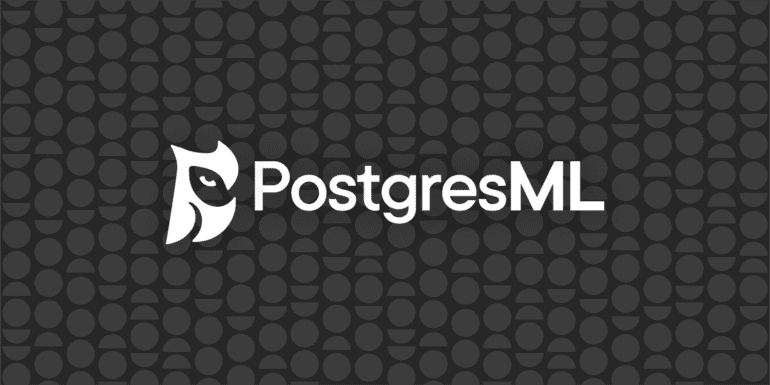TL;DR:
- PostgresML, an MLops platform, is now generally available for enterprises and scale-ups.
- The company secured $4.7 million in seed funding to enhance the accessibility of AI for mid-sized companies.
- PostgresML simplifies AI application development on PostgreSQL, reducing complexity and offering performance benefits.
- Traditional AI infrastructure requires significant overhead, but PostgresML streamlines the process.
- PostgresML aligns with the trend of adapting developer tools and databases to an AI-first world.
- PostgreSQL’s scalability and trust among enterprises make it a preferred choice over competitors.
- The usage of PostgreSQL is growing, with SMBs increasingly relying on it.
Main AI News:
In the fast-evolving landscape of artificial intelligence (AI) and machine learning (ML), PostgresML emerges as a game-changer, offering an innovative MLOps platform that paves the way for the next generation of in-database AI applications. With its recent general availability announcement, this groundbreaking platform is set to empower both enterprises and scale-ups, revolutionizing how AI is integrated into their operations.
Securing $4.7 million in seed funding, PostgresML is now poised to expand its horizons after gaining early traction among developers. The primary objective? To democratize AI, making it more accessible to mid-sized companies. This funding injection will drive PostgresML’s mission to simplify the world of AI for businesses, providing them with a potent tool for competitiveness in today’s data-driven market.
PostgresML, known as the AI Postgres extension, introduces a comprehensive end-to-end machine learning operations platform. What sets it apart is its ability to enable developers to effortlessly prototype and deploy AI applications on PostgreSQL. This is achieved by seamlessly integrating the latest machine learning techniques and substantial language models directly into the widely used relational database. The outcome is a reduction in complexity for app developers, coupled with a plethora of advantages in terms of performance, cost-efficiency, and data quality.
The Challenge of AI Infrastructure
Traditionally, developing AI-powered applications necessitated a multitude of microservices to handle the entire machine learning workflow, including data preparation, inference, fine-tuning, and the use of a stateful database to store essential features. This standard approach to ML operations typically came with significant overhead, with many companies resorting to hiring experienced ML engineers to construct and maintain custom infrastructures. The added burden included teams of data engineers tasked with maintaining complex data pipelines. Moreover, the inevitable network hops from one service to another introduced latency and potential risks associated with data transfers.
Montana Low, CEO, and Co-Founder of PostgresML, succinctly addresses this challenge, stating, “The recent surge in AI capabilities has only escalated costs and complexity for application developers. By streamlining the infrastructure requirements, we empower developers, founders, and in-house teams to focus on creating intelligent and engaging applications.“
The Postgres Renaissance
Recognizing the transformative potential of PostgresML, Sarah Catanzaro, General Partner at Amplify Partners, remarked, “PostgresML is at the forefront of a trend wherein widely adopted developer tools and databases (such as Postgres) are being adapted and extended to an AI-first world.” Amplify Partners spearheaded the seed round of funding, with participation from prominent figures in the tech industry, including co-founders of Instacart and founding investors from Vercel and Box Group.
PostgreSQL, with its remarkable scalability, cost-efficiency, and nearly four-decade legacy as a relational database management system, has earned the trust of industry giants like Apple and Cisco. This preference over incumbents like AWS, RDS, or Aurora is due to its proven reliability. According to The State of PostgreSQL 2022 report, usage is on the rise, with small and medium-sized businesses increasingly turning to Postgres for their data needs. A majority of respondents across all company sizes (55%) have reported an increase in their usage of this database.
Conclusion:
PostgresML stands at the intersection of AI innovation and robust database technology, offering a compelling solution that simplifies AI infrastructure while leveraging the trusted PostgreSQL platform. As the AI revolution gains momentum, PostgresML’s impact on the landscape is poised to be nothing short of revolutionary, ultimately enabling businesses of all sizes to harness the power of AI more efficiently and effectively than ever before.

